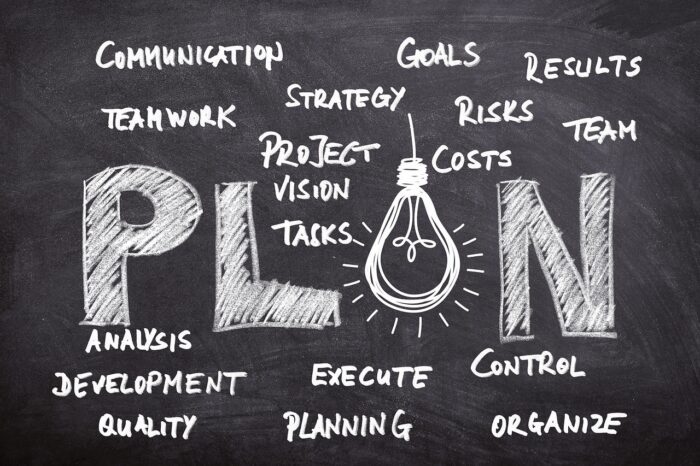
How to Prepare for Exams: 11 Tips
Do You Have Exams Ahead, and You Want to Be at the Peak of Your Cognitive Abilities?
Yes, preparing for tests can be difficult, and sometimes it is not even clear where to start. Nevertheless, there are ways to improve memory, concentration, and even mood for this period.
We have collected tips from neurobiologists, psychologists, and nutritionists, as well as wise advice from teachers and students – and amounted to the list of tips on them. If you are still struggling with exam preparation, you can check WritingAPaper for additional help. This way you will significantly improve your writing skills.
1. Food for the Brain

For proper functioning, the body needs energy, and the brain’s ability to concentrate directly depends on an adequate, stable energy supply in the form of glucose.
Studies show that students who have breakfast show the best results on the exams because it is easier to concentrate and remember information.
So start your day with carbohydrates that will slowly release energy during the morning: oatmeal, wholegrain bread, or low sugar cereals.
Try proven brain food. These are eggs, fatty fish (mackerel, sardines, and salmon, rich in omega-3 fats), wholegrain cereals, cabbage, mangold, spinach, broccoli (and in general all dark green leafy vegetables), tomatoes, and avocados.
2. Start Early
Start being prepared long before the date of the exam – it will help you feel calmer, and you have fewer chances to finish all the simple van.
Try to study in the morning when your brain rests is rested. Do not leave most of your studies in the second half of the day, when there is a higher probability that you will be tired or decide to work late.
3. Decide What to Focus on
Are you waiting for an oral, practical, or situational exam?
Different types of examinations require different approaches, so find out the format of your exam. Then you will know exactly how you prepare.
For an exam in the form of an essay, you may not need to cover all items, so it can be more efficient to focus on some topic and study it more deeply.
A test with multiple response options or a short exam in the form of answers will require a wider, but less detailed understanding of the curriculum.
4. Make Up the Plan

It may seem laborious, but the compilation of an integrated plan will save you time. You do not have to spend not a minute to decide what exactly are learning, – and it will help you track your progress.
Make a schedule as detailed as possible, including any relevant documents or notes that you need to view – and stick to it.
And do not forget to allocate time for communication, sports, and any other fun activities
5. Intervals
Distribute your classes and do not even think about the cramp. It is much better to carry out one-hour training classes within 10 days, rather than study the subject 10 hours one day.
To memorize information, time is required, but it has been proven that the interval method is most effective: due to the interval between sessions, it allows you to forget, and then again study the material.
This strategy is named “one of the most reliable in the entire history of experimental research in the field of learning and memory.”
But keep in mind that what is well suited for one exam may not be the best method for the other.
Other memorization methods are flashcards based on interval repetitions, associative cards, group work and even recording conversations with their subsequent listening.
That is why it is good to start in advance. It will give you time to try and test what works for you.
6. Test Yourself
According to leading psychologists and neurobiologists, “self-testing” can be one of the most effective ways to improve your ability to assimilate information.
This technique helps you understand the concept itself, and not just memorize it by heart, and allows you to check the availability of spaces in your knowledge.
One of the best ways to check ourselves is to practice passing test t – or just ask yourself questions after the next repetition of the material.
7. Become a Teacher

So, you all learned and checked yourself … What’s next? Go and teach this material to someone else, of course!
It stimulates your memory and ability to memorize: to teach another, you must study and organize your knowledge in a clear and structured form.
8. Be Smart… And Hide the Phone
Phones are needed, but not during the study. The bait in the form of social networks and messengers will constantly distract you and pursue you because of the effect of “fear of missing something important” (English Fear of Missing Out or abbreviated FOMO).
And do not deceive yourself, thinking that you can leave it on the table and do not touch it. Studies show that one presence of the phone in the visibility zone will be enough to undermine your ability to concentrate.
9. Less Music, More Silence
Students who learn in a relaxed atmosphere are better at remembering the material than those who listen to music during classes.
It is especially crucial for an introvert, as they are more inclined to be distracted by the background music, rather than an extrovert.
10. Regular Breaks, Fresh Air, and Exercise
Pauses between training sessions give more chances to remember what you worked on.
Your body and your mind are inextricably linked. Exercise ensures the bloodstream, delivering more oxygen to the brain and helping it function better – exactly what you need during the exams.
Not to mention the cognitive advantages of interaction with nature and that regular exercise helps to overcome anxiety and increase self-esteem.
In addition, if you breathe fresh air, you will have more chances to return to the desktop, and you can focus better after a walk.
11. Get Enough Sleep

At night, before the exam, you need to sleep well – but this rule also applies to the entire period of preparation for tests.
Fall asleep at a reasonable time means that you can wake up early, well-rested, and ready to begin to fulfill the plan of the day.
Do not learn the temptation to prepare for the night to disappear, beware of the perfectionism – it can prevent your holiday.
Sometimes studies are inevitable lately. However, try to reduce such cases to a minimum, follow the usual sleep time and stay away from the gadgets at night. In the end, you have more than any previous generation of students, ways to improve their memory, mood, and concentration.
So just try to keep a calm and positive mood during the entire process of repetition of the material. And if you have a bad day, do not let him affect how you will learn the day later.
The bottom line is to understand how to learn how to most effectively and diligently adhere to this method.
And finally, the last, no less important … Do not forget to reward yourself when the exams are completed!
